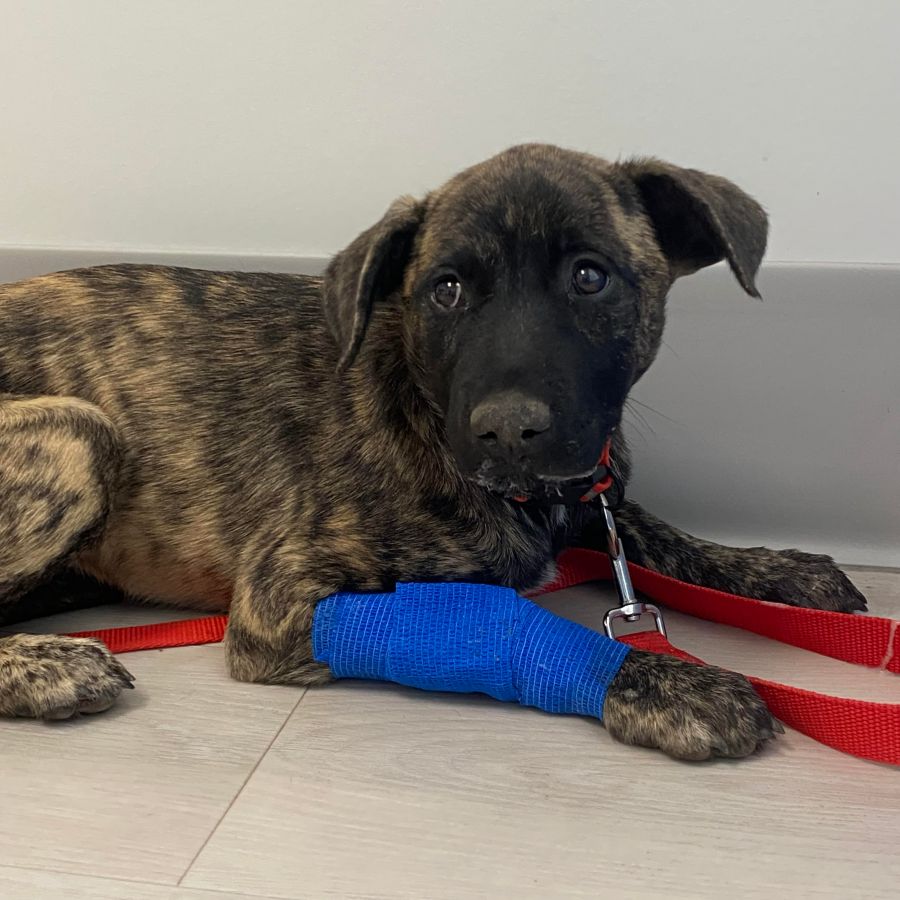Search VernonNow
Help is urgently needed to save animals in need across the region.
The Okanagan Humane Society (OHS) says it has rescued, treated and supported 3,534 animals since the beginning of 2025, equivalent to 14 animals every day.
Those are numbers the OHS says it has never faced since being established in 1996.
Romany Runnalls, executive director at OHS, says they’ve “lost ground in the battle against pet overpopulation” since the COVID-19 pandemic.
“During the pandemic, people welcomed animals into their homes in record numbers, but now the skyrocketing cost of living, rent, food, even the basics has left many unable to provide proper veterinary care,” she explained through a media release.
“Families know they need to spay and neuter, but when a single procedure and microchip starts at $500, and much more for dogs, it becomes impossible for many to afford.”
The latest crisis facing the organization is an outbreak of canine parvovirus (parvo), which presents itself in puppies that have gone without vaccinations.
According to Runnalls, the OHS has had to send 12 puppies to hospital in the past three weeks from five separate unrelated cases across the region.
That includes Octavia, a two-month-old puppy who was abandoned at one of the charity’s veterinary partner hospitals by her owner before the OHS was called for assistance.
After testing positive for parvo, Octavia was immediately moved to isolation and spent a full week in hospital receiving a range of intensive treatment.
Fortunately, the puppy was able to beat what can be some young dogs and is now making a full recovery with an experienced foster family, who will be keeping her away from other puppies for several months.

Parvo is a very contagious, dangerous and often deadly disease that affects primarily puppies, but unvaccinated dogs of any age are at risk.
Vaccinations against parvo are only around $35 each, but the cost to treat a puppy who contracts the disease can reach $3,000.
Beyond the parvo crisis, the OHS is dealing with both its rescue and pet assistance programs being stretched to the limits this year.
The number of animals coming into OHS care has grown from 1,500 in 2022 to 2,500 in 2023 to 4,000 in 2024, and now a pace of over 5,000 in 2025.
The face of the crisis is not only growing, Runnalls notes, but also changing.
“We’re seeing more homes with 20, 30, even 40 animals, often because families couldn’t afford to spay or neuter and litters kept coming,” she explained.
“Animals are still being born outdoors, in tent cities, industrial sites and on farms, but more than ever, they’re being surrendered or rescued directly from people’s homes.”
She adds that OHS volunteers work around the clock with partner veterinarians to deliver life-saving vaccines, spay and neuter surgeries, microchips and rehoming services to animals desperately in need.
Even with volume pricing and discounts that cut costs significantly, the price is still staggering and the strain on those volunteers, as well as OHS resources, is “unprecedented.”
“Rescue has always been at the heart of OHS, but these numbers are overwhelming,” Runnalls revealed. “Without immediate community support, we cannot keep pace with the growing crisis.”
The charity is urgently calling on individuals, businesses and community groups to step forward with donations, sponsorships and volunteer time to make a direct and immediate impact.
You can learn more about how to support the OHS through the organization’s website.
The team at Scotiabank will also be doing its part this weekend with the bank’s annual Fetching Funds campaign.
Team members from four branches – Vernon, West Kelowna and two in Kelowna – are participating alongside OHS volunteers at four locations this Saturday, Sept. 20: